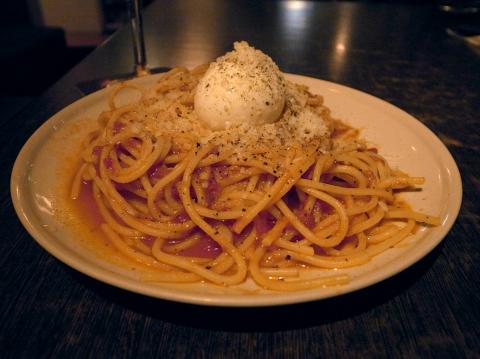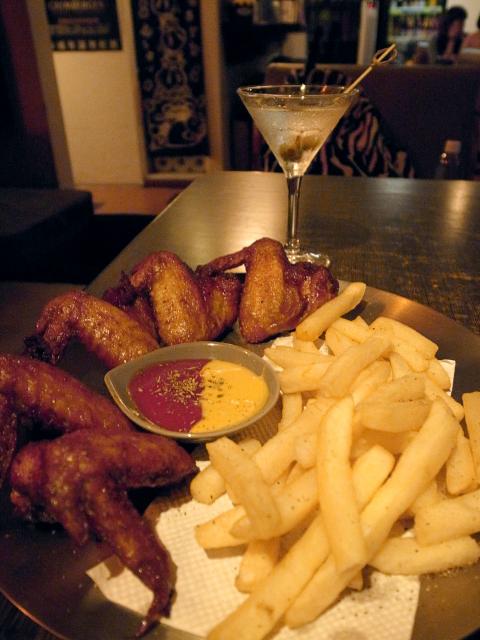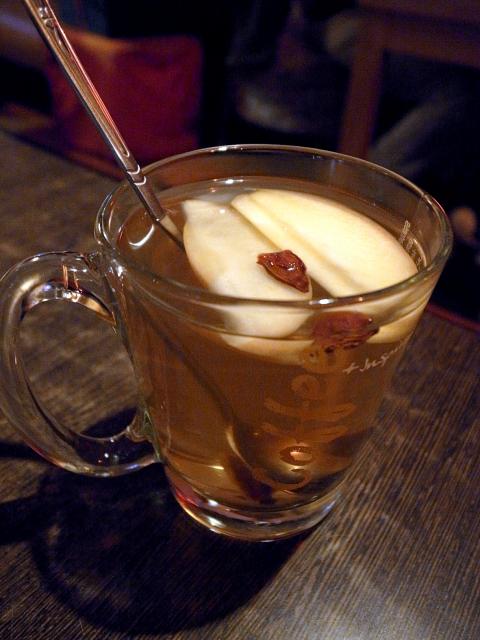T here was a sense that something was amiss in Shida (師大) when my drinking companions and I stood in front of the apartment building in which Bistro O is located. The door was locked. A sign said reservations must be made ahead by phone. We called, and a few minutes later someone came down and let us in.
She told us that the bar will be closed for half a year starting next month, but it is not certain whether business will be resumed after the break. The woman, however, kept her lips sealed over the reason behind the closure.
A few days later, the news of Underworld (地下社會) shutting down on June 15 hit Facebook. Sadly, the basement rock club has lost its battle against outdated regulations, inert bureaucracy and the Shidahood Self Help Association (師大三里里民自救會), a neighborhood lobby group that has taken credit for the mass closures of restaurants and shops in the Shida area.

Photo: Ho Yi, Taipei Times
Though the future may look dim, at least for now the city’s rebels and bacchanalians can still count on the two longtime Shida businesses to have a great night out.
Tucked away in the maze of alleys that constitute the Shida night market, Bistro O feels like an oasis of seclusion from the hubbub outside. It is dark, atmospheric and filled with threadbare furniture that strangely lends the place a bohemian charm. A couple of fluffy felines occasionally glide through the space, and like their human companions that work at the bar, they seem detached, minding only their own business.
What is offered at the bar is a completely different matter. The bar’s remarkably long list of alcoholic drinks is intended to make a boozer squeal with excitement. The wide spectrum of drinks ranges from classical cocktails, beer (mostly Belgian), to spirits and innovative concoctions. The bar also devises its variations of the classics, with the drink menu beginning with more than a dozen varieties of long island iced tea (NT$350) including mixtures with absinth and black tea. There is an equal number of martini varieties among which grasshopper (NT$200) sees pepper mint and cocoa, while the rose litchi martini (NT$250) fuses sake and gin with rose honey, litchi fruit and cranberry juice.

Warning: Excessive consumption
of alcohol can damage your health.
Photo: Ho Yi, Taipei Times
Tipplers who prefer to imbibe liquor by the shot should look no further than the extensive section of premium spirits that include Hendrick’s gin (NT$230 per glass and NT$2,300 per bottle) from Scotland, Poland’s Potocki vodka (NT$240 and NT$2,400), France’s Grey Goose (NT$240 and NT$2,400), Lagavulin 16 year old whisky (NT$340 and NT$3,400) and Patron tequila (NT$180 per shot and NT$270 per glass).
For health-conscious drinkers, the bar has gone through the trouble of making their own liqueurs using fresh fruit and homegrown herbs. The end product includes lavender cassis (NT$250), caipilrinha cachaca (NT$250) and mojito fruit mojito (NT$250) with handmade jam.
Female imbibers will appreciate the thoroughness of the all-female staff. They concoct sweet alcoholic beverages including hot chocolate with rum (NT$200). And, for that special female time of the month, there is the Kahlua and milk tea (NT$200).

Warning: Excessive consumption
of alcohol can damage your health.
Photo: Ho Yi, Taipei Times
The bar also carries a respectable menu of pub grub, pasta and sandwiches. The soft egg tomato pasta with Parmesan cheese (NT$200) and walnut egg yolk cream pasta (NT$200) we recently tried were on a par with those offered in restaurants. Flavored with rosemary, the buffalo wings with French fries (NT$300) were a table favorite.
Unfortunately, hookahs are no longer available in the establishment.
Bistro O is having a special on all cocktails and spirits before its hopefully temporary shutdown on April 30. Take 20 percent off the original price and you will have an intoxicating night in Shida before the above-mentioned self-help association turns the bustling neighborhood into a dull residential area.

William Liu (劉家君) moved to Kaohsiung from Nantou to live with his boyfriend Reg Hong (洪嘉佑). “In Nantou, people do not support gay rights at all and never even talk about it. Living here made me optimistic and made me realize how much I can express myself,” Liu tells the Taipei Times. Hong and his friend Cony Hsieh (謝昀希) are both active in several LGBT groups and organizations in Kaohsiung. They were among the people behind the city’s 16th Pride event in November last year, which gathered over 35,000 people. Along with others, they clearly see Kaohsiung as the nexus of LGBT rights.

Jan. 26 to Feb. 1 Nearly 90 years after it was last recorded, the Basay language was taught in a classroom for the first time in September last year. Over the following three months, students learned its sounds along with the customs and folktales of the Ketagalan people, who once spoke it across northern Taiwan. Although each Ketagalan settlement had its own language, Basay functioned as a common trade language. By the late 19th century, it had largely fallen out of daily use as speakers shifted to Hoklo (commonly known as Taiwanese), surviving only in fragments remembered by the elderly. In

Dissident artist Ai Weiwei’s (艾未未) famous return to the People’s Republic of China (PRC) has been overshadowed by the astonishing news of the latest arrests of senior military figures for “corruption,” but it is an interesting piece of news in its own right, though more for what Ai does not understand than for what he does. Ai simply lacks the reflective understanding that the loneliness and isolation he imagines are “European” are simply the joys of life as an expat. That goes both ways: “I love Taiwan!” say many still wet-behind-the-ears expats here, not realizing what they love is being an

In the American west, “it is said, water flows upwards towards money,” wrote Marc Reisner in one of the most compelling books on public policy ever written, Cadillac Desert. As Americans failed to overcome the West’s water scarcity with hard work and private capital, the Federal government came to the rescue. As Reisner describes: “the American West quietly became the first and most durable example of the modern welfare state.” In Taiwan, the money toward which water flows upwards is the high tech industry, particularly the chip powerhouse Taiwan Semiconductor Manufacturing Co (TSMC, 台積電). Typically articles on TSMC’s water demand